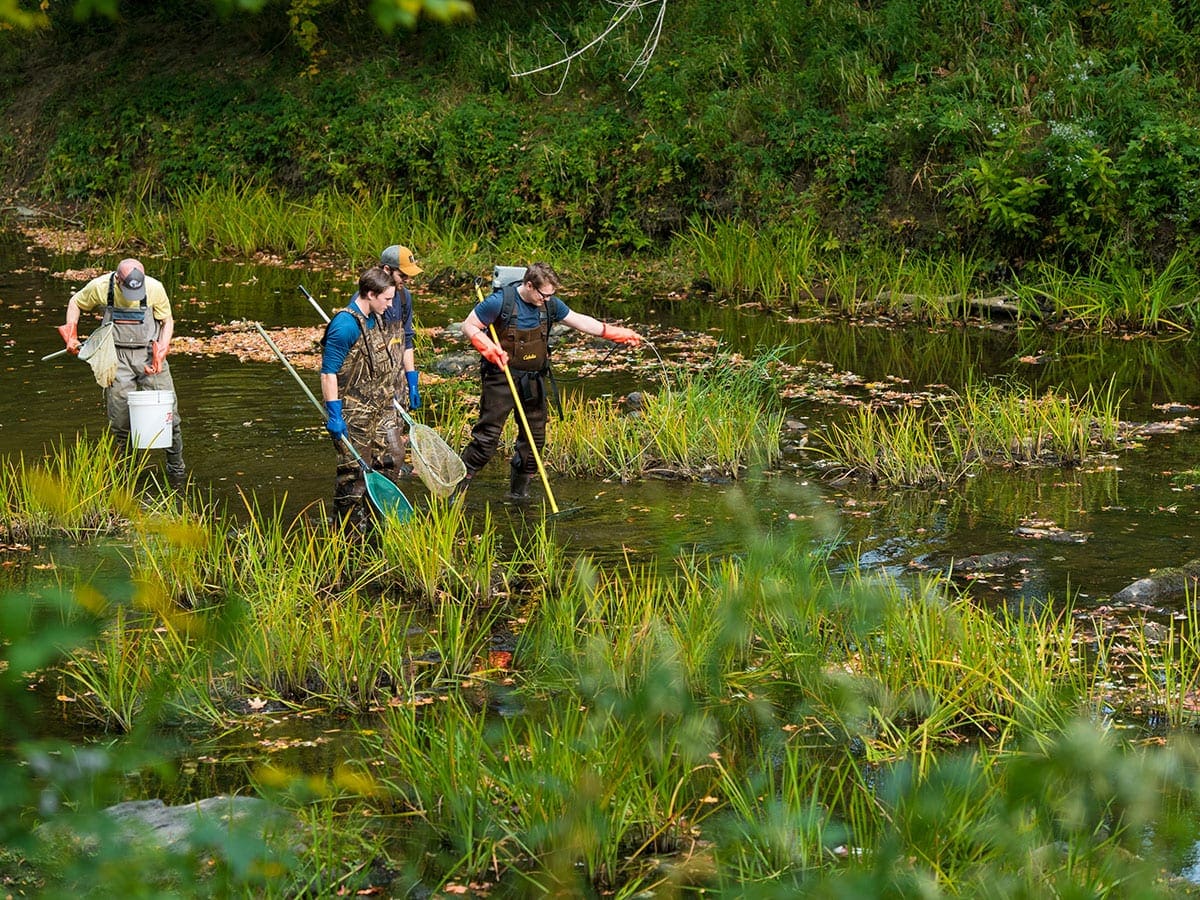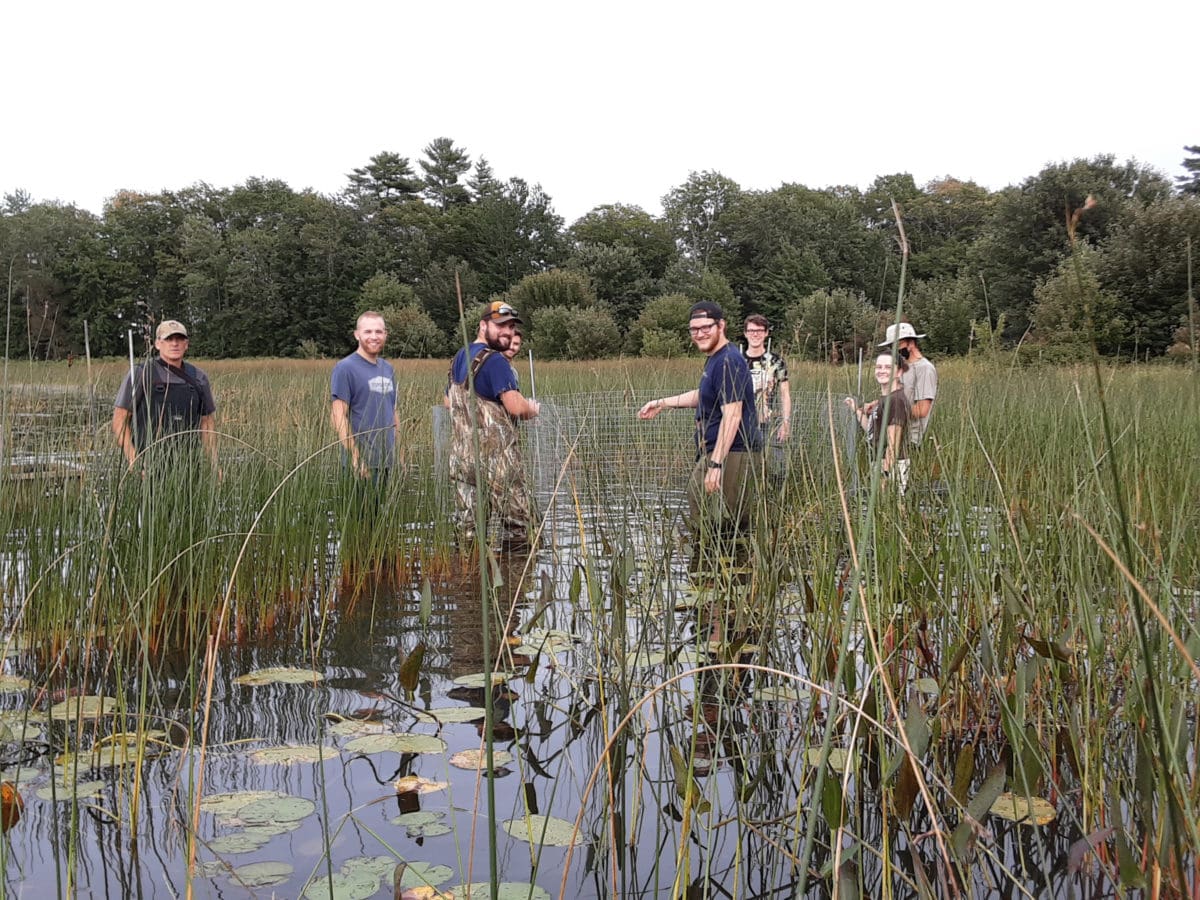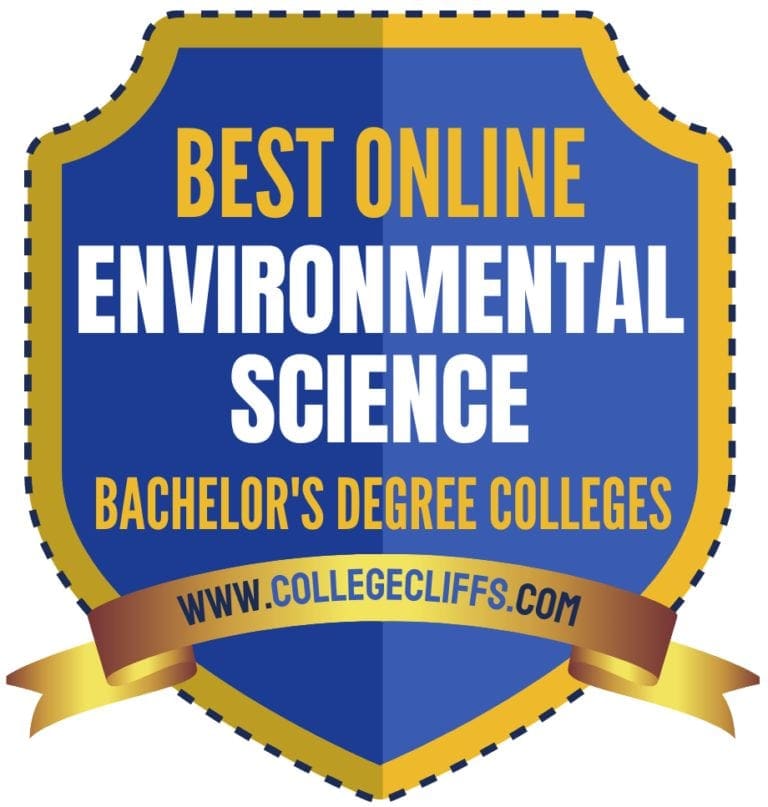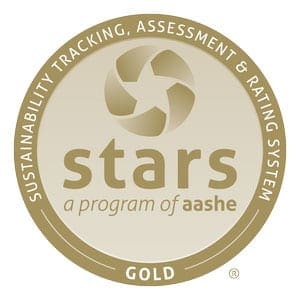Earn a Wildlife and Fisheries Degree with a Focus on Conservation
For someone looking for an engaging career as a fisheries biologist, conservation planner, field biologist, wildlife technician, habitat restoration specialist, or a research scientist, this program provides the skills and knowledge to prepare you for these paths. The in-person bachelor's degree program in Wildlife and Fisheries Conservation Management presents an immersive journey into the heart of conservation, providing students with a robust curriculum designed to arm them with the essential tools for thriving careers. Through engaging coursework spanning wildlife and fisheries ecology, conservation biology, habitat and population assessment, GIS applications, statistical analysis, and natural resource law and policy, students are primed for success in the dynamic realm of conservation management. The pinnacle of the program lies in its hands-on internship, offering invaluable real-world experience that solidifies classroom learning and propels graduates into fulfilling and impactful careers in safeguarding our natural world.
Wildlife and Fisheries Conservation Management Highlights
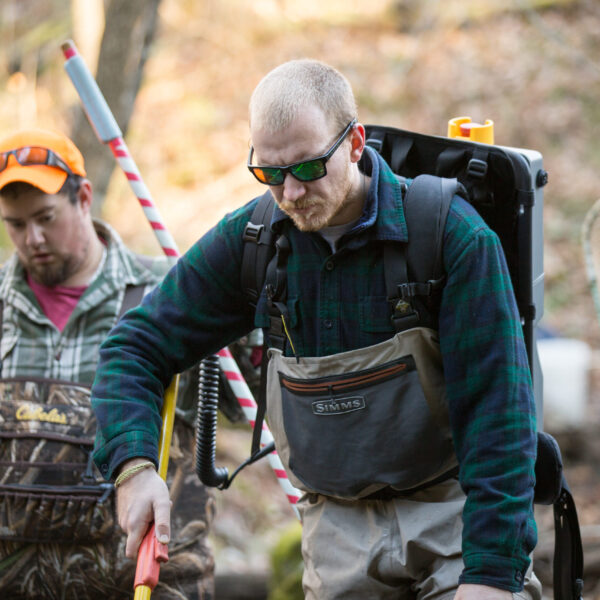
Personalized Attention
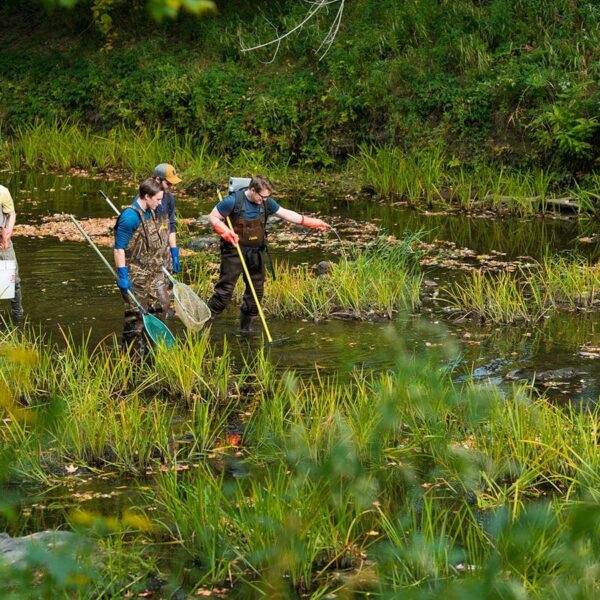
Field Experience

Flexible Learning Options
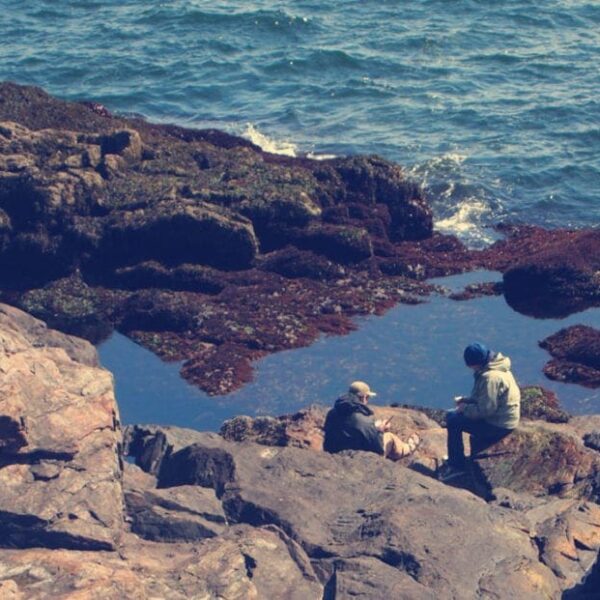
Research
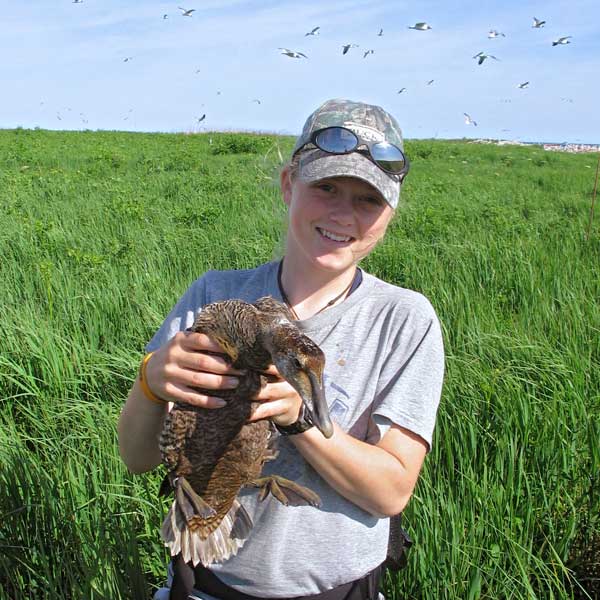
Career Connection
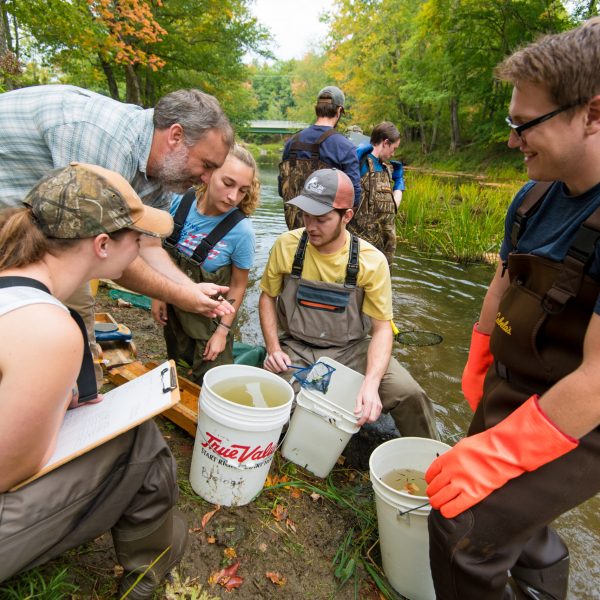
What Students Study
Many courses in the Wildlife Fisheries and Conservation Management degree program integrate other disciplines for cross-study purposes, helping you to consider solutions to human-natural systems in your coursework. As a student in our program, you will gain the fine-tuned skills and knowledge to become an experienced environmental problem-solver.
In addition to liberal arts foundation courses, the program includes a full range of wildlife courses such as the ecological and biological principles that underpin the disciplines of wildlife and fisheries management. In addition, all wildlife and fisheries majors will have experiential learning in the techniques and practices of wildlife and fisheries management and will be familiar with the concepts that underlie manipulations of wild populations and their environment to maintain these sustainable resources.
Graduates of these programs are qualified for entry into the wildlife and fisheries professions as field biologists or technicians.
Many courses have an outdoor lab component in which you’ll learn in various nearby natural settings and then continue the learning process in the lab using modern equipment and technology.
Course List
To earn a Baccalaureate degree in Wildlife and Fisheries Conservation Management, you must complete:
- General Education Core: 44 credits
- Program Core: 37 credits
- Electives: 39 credits
University Wide Requirements: A minimum of 120 earned credit hours, 30 credits at the 300 level or above, a minimum of 30 credits earned at Unity, and an overall cumulative GPA of 2.0 or above.
General Education Core
ART 1001 Creative Expressions: Art and the Natural World | 3 Credits
Unleash your creativity and develop artistic skills as you engage with the intricate beauty of the natural world and explore and reflect on the forms, structures, and patterns of nature. This dynamic course emphasizes personal expression over technical perfection, ensuring a space for artistic exploration. Uncover how the environment can shape your artistic voice through a variety of traditional and digital art media and techniques. Through hands-on projects, demonstrations, and interactive activities, you’ll draw connections between art and science, fostering a deeper understanding of both. Communicate your vision and provide peer feedback in a supportive, in-person learning community, setting the stage for a future where art and ecological consciousness intersect.
Credits: 3
Prerequisites: None
BIO 1001 Nature’s Kaleidoscope: Exploring Life’s Diversity | 3 Credits
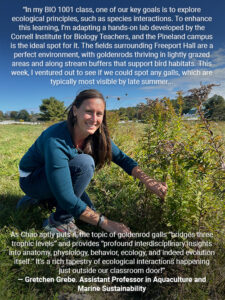 Explore the breathtaking diversity of life on Earth. In this course, you will delve into the realms of macroevolution, organismal structure and function, and the dynamic interactions within ecosystems. Through practical applications and cutting-edge industry practices, students will uncover the mechanisms of evolution and the intricate forms and functions of diverse organisms. This course integrates engaging hands-on activities, immersive fieldwork, and detailed case studies, equipping you with the skills and knowledge necessary to thrive as an environmental science and sustainability professional.
Explore the breathtaking diversity of life on Earth. In this course, you will delve into the realms of macroevolution, organismal structure and function, and the dynamic interactions within ecosystems. Through practical applications and cutting-edge industry practices, students will uncover the mechanisms of evolution and the intricate forms and functions of diverse organisms. This course integrates engaging hands-on activities, immersive fieldwork, and detailed case studies, equipping you with the skills and knowledge necessary to thrive as an environmental science and sustainability professional.
Credits: 3
Prerequisites: None
BIO 1002 Nature’s Kaleidoscope: A Laboratory Exploring Life’s Diversity | 1 Credit
Discover the wonders of biological diversity through Nature’s Kaleidoscope: A Laboratory Exploring Life’s Diversity. This course offers an immersive and interactive lab experience, revealing the intricate patterns and processes that shape life on our planet. Through hands-on experiments and engaging activities, you’ll explore the rich tapestry of life, honing your scientific inquiry skills. This course prepares you for careers in environmental science and sustainability by providing practical knowledge and laboratory expertise.
Credits: 1
Prerequisites: BIO 1001 (or concurrent enrollment)
CAR 1001 Essential Skills for Success and Career Planning | 1 Credit
This 1-credit course equips students with essential skills to excel in their studies and transition smoothly into their chosen careers. Students will engage in strategic goal setting and explore career paths using design thinking principles. Key activities include conducting industry research, participating in relevant career and industry events, and developing a personalized career plan. Additionally, students will gain valuable insights into critical thinking, self-advocacy, and effective use of campus resources.
Credits: 1
Prerequisites: None
CHM 1001 Chemistry in Action: From Theory to Practice | 3 Credits
Explore the fascinating world of chemistry, where you will dive into atomic theory, investigate the fundamental components of matter, master chemical bonding, and uncover molecular structure and reactivity. Additional emphasis is placed on nomenclature, stoichiometry, orbitals, electron configurations, the periodic table, intermolecular forces, aqueous solutions, and basic chemical reactions. Learn to balance chemical equations and explore key reactions such as acid/base, precipitation, and redox. This course equips students with essential knowledge needed to tackle the intricate environmental issues of tomorrow.
Credits: 3
Prerequisites: None
COM 1001 Rhetoric in Nature: Writing for Environmental Impact | 3 Credits
Immerse yourself in the art of effective communication, an essential skill for success in environmental and sustainability careers. This course blends interactive workshops with collaborative sessions that enhance your professional writing skills. Learn to craft compelling narratives, reports, and persuasive texts for diverse audiences, with a focus on organization, evidence-based writing, clarity, and cohesion. Develop strategies for drafting, revising, and refining your writing, and become a more impactful communicator ready for professional challenges.
Credits: 3
Prerequisites: None
COM 2001 EcoMedia: Storytelling for Sustainability | 3 Credits
Dive into the dynamic world of EcoMedia, where the power of storytelling meets environmental advocacy. EcoMedia uses various media platforms and communication strategies to inform, educate, and engage the public on environmental issues. Learn to craft compelling environmental narratives through social media, podcasts, video, and print, promoting sustainability and influencing public policy. Engage in hands-on projects that explore the transformative power of storytelling to shape public perceptions and drive positive environmental actions. Develop skills in media production, strategic communication, and ethical reporting to effectively convey stories. Prepare to become a persuasive advocate for the environment, equipped with the tools to make a meaningful impact through media.
Credits: 3
Prerequisites: None
COM 3001 Messages that Resonate: Creating Impactful Communication | 3 Credits
Elevate your communication skills to make a significant impact. Learn and apply sophisticated techniques for crafting persuasive messages and compelling campaigns. Engage in practical exercises and case studies to analyze and develop effective communication strategies. Gain expertise in leveraging digital tools, engaging with diverse stakeholders, and addressing complex ethical considerations. Develop essential skills to effectively convey your messages to diverse audiences, preparing you for success in today’s dynamic job market
Credits: 3
Prerequisites: None
ENV 1001 The Life Blood of Our World: Rivers, Lakes, and Streams | 3 Credits
Dive into the dynamic world of rivers, lakes, and streams! Discover the science and significance of freshwater ecosystems as you explore their endless diversity. Students from all programs discover how these vital water bodies are more than just scenic landscapes; they are the lifeblood of our ecosystems and societies. See firsthand through immersive field trips and interactive projects how these waterways support diverse wildlife, drive local industries and recreation, and play a crucial role in enriching communities. Inspired by the boundless opportunities for protecting and preserving our precious natural resources, this course prepares you to make a transformative difference in your future career.
Credits: 3
Prerequisites: None
ENV 2001 Environmental Resilience: Tackling Climate Challenges | 3 Credits
Dive into one of the most pressing and intricate challenges of our time – climate change. This course takes students on a journey to explore the profound effects of climate change on ecosystems, wildlife, and human societies, both locally and globally. Immerse yourself in climate data analysis, modeling, hands-on projects, and field experiences that equip you to address these challenges head-on. The course culminates with innovative strategies for climate mitigation and adaptation, empowering you to develop sustainable solutions and prepare for careers as environmental professionals. This course is not just about learning, it’s about making a difference in the world. Are you ready to take on the challenge?
Credits: 3
Prerequisites: None
EVJ 3001 Ethics at Work: Practical Approaches to Decision-Making | 3 Credits
Navigate the complexities of ethical decision-making, a crucial skill for creating a just and equitable world. Learn practical strategies, tools, and techniques to discern ethical implications and make informed decisions. Plunge into ethical philosophy to understand the foundations of ethical awareness and action. Engage with case studies to develop your ability to distinguish difficult decisions from true ethical dilemmas. Practice deliberating on a variety of ethical issues drawn from social and professional contexts, preparing to lead with integrity and make impactful, ethical choices in your career and beyond.
Credits: 3
Prerequisites: None
HIS 2001 The Past is Present: America’s Environmental History | 3 Credits
Immerse yourself in the dynamic narrative of America’s environmental history from pre-Colonial times to the present. Explore how human societies and natural environments have continuously shaped each other through pivotal events like the Dust Bowl and the environmental movement of the 1960s and 1970s. Engage with digital archives and artifacts to uncover ecosystem transformations, industrial impacts, and cultural shifts. Participate in hands-on activities, field trips, and real-world case studies that bring historical analysis to life. This course not only provides critical insights into the past but also equips you with the skills to address contemporary environmental challenges, preparing you for impactful careers.
Credits: 3
Prerequisites: None
INT 4001 Environmental Impact Internships: Career Pathways OR CAP 4001 Pioneering Change: Capstone in Environmental Solutions | 3 Credits
INT 4001 Environmental Impact Internships: Career Pathways
Embark on a transformative journey with the Environmental Impact Internship, where academic knowledge meets real-world practice. Envision yourself collaborating with seasoned professionals, addressing pressing environmental issues, and expanding your professional network. This internship experience provides a distinctive combination of practical experience and thoughtful reflection, equipping you wit the essential skills for a successful career. You’ll take charge of diverse tasks, strengthen your skills, and grow your potential as an environmental professional. This hands-on approach will also enhance your problem-solving and leadership skills in preparation for your future career.
Credits: 3
Prerequisites: 60 credits
May be taken more than once for up to twelve credits. All credits beyond three count as elective credits.
CAP 4001 Pioneering Change: Capstone in Environmental Solutions
Step into the final, thrilling phase of your academic journey with Pioneering Change: Capstone in Environmental Solutions. This course brings together the knowledge and skills you’ve acquired throughout your degree to confront real world environmental challenges. Working in diverse teams, you will develop impactful solutions and present them through a professional-grade project. This immersive experience hones your problem-solving and communication abilities, showcasing your readiness to potential employers to address critical environmental issues. Get ready to make a lasting impact on the world!
Credits: 3
Prerequisites: At least one 4000-level major core course and 60 credits. Or 90 total credits.
LDR 4001 Inspiring Action: Transformational Leadership Strategies | 3 Credits
Become a catalyst for positive change. Reflect on your personal leadership style, learn to build meaningful relationships, and understand the impact of leadership within complex systems. Through case studies in various sectors such as business, government, nonprofit, community, and education, examine organizational behavior and culture, and practice consensus building and project management to drive effective change. Develop practical tools that will empower you to navigate and lead effectively in your future career, ensuring you are equipped to inspire and manage transformational change.
Credits: 3
Prerequisites: 60 credits
MTH 2001 Data is Power: Drawing Insights from Statistics | 3 Credits
Unlock the power of data and develop insights into pressing environmental issues. Apply essential statistical tools to collect, analyze, and interpret data about real-world environmental challenges such as pollution, biodiversity, and climate change. Engage in hands-on exercises, case studies, and real-world applications crucial for environmental research, monitoring, and management. Gain proficiency in statistical software and data visualization to make meaningful impact in your career and contribute to sustainable solutions for our planet’s future.
Credits: 3
Prerequisites: None
PSY 1001 Mind Matters: An Introduction to Psychology | 3 Credits
Dive into the fascinating world of psychology, uncovering its historical roots and modern advancements. Explore the core subfields: biological, developmental, cognitive, social, and mental health. Develop the skills to critically evaluate psychological research and methodologies, empowering yourself as a knowledgeable consumer of psychological insights. Participate in engaging projects that integrate diverse psychological perspectives, deepening your understanding of human behavior. Gain essential transferable skills including critical thinking, problem-solving, effective communication, and a deep understanding of human behavior that are critical for success in any professional environment.
Credits: 3
Prerequisites: None
Program Core
BIO 2001 Canopy to Ground Cover: Plant Ecology | 3 Credits
Plants give structure to ecosystems and support the wildlife within them. Immerse yourself in the study of plant biology, exploring how key aspects of plants interact with environmental conditions to influence growth, distribution, and abundance. Learn to identify and characterize trees, shrubs, and other plant species found in diverse habitats. Participate in hands-on fieldwork and engaging projects to build the practical skills and knowledge required for success in environmental science and conservation roles.
Credits: 3
Prerequisites: None
BIO 3003 Life’s Balance: Biology in Conservation | 3 Credits
Uncover the science behind biodiversity preservation and ecosystem management. Delve into population biology, habitat restoration, and conservation policies and gain practical skills to help protect our natural world. Through interactive sessions and applied case investigations, you’ll tackle real-world conservation challenges and acquire the expertise to make a significant impact.
Credits: 3
Prerequisites: BIO 1001
CHM 1002 Chemistry in Action: Practical Laboratory Skills | 1 Credit
Discover the fascinating world of chemical reactions and their applications in everyday life. Embark on an exciting exploration of chemistry through immersive laboratory experiences designed to ignite your curiosity and practical skills. Explore techniques such as spectrophotometry and titrations while learning the importance of safe laboratory practices. Led by expert instructors, you’ll gain confidence in conducting experiments, analyzing results, and applying principles of chemistry in real-world contexts.
Credits: 1
Prerequisites: CHM 1001 (or concurrent enrollment)
EVJ 3002 From Acts to Action: Natural Resource Law and Policy | 3 Credits
Discover the essential role of law and policy in managing and protecting our natural and wildlife resources. Delve into the intricacies of environmental legislation, regulatory processes, and policy development at local, national, and international levels. Examine key laws such as the Clean Water Act, the Endangered Species Act, and the National Environmental Policy Act, analyzing their impacts through case studies and real-world applications. Develop essential career skills that prepare you to navigate the legal landscape, advocate for sustainable practices, champion future policies, and positively contribute to sustainable resource management and conservation in your own way.
Credits: 3
Prerequisites: None
GIS 1001 Mapping Earth’s Hidden Patterns: GIS Essentials | 3 Credits
This course introduces learners to the fundamental principles and cutting-edge techniques of Geographical Information Systems (GIS). Through hands-on experience with industry standard GIS software, learners will generate, store, and transform special datasets, and analyze these datasets to address environmental and sustainability challenges. The course will explore the latest trends in GIS, including cloud-based GIS and integration with drones and the Internet of Things (IoT) for real-time data collection and analysis. Emphasis will be placed on the practical application of GIS in environmental professions, with a strong focus on sustainability and interdisciplinary approaches. Students will collaborate with peers and professionals, engage in real-world case studies, and develop essential skills for careers in environmental and sustainability fields.
Credits: 3
Prerequisites: None
WFB 1001 Streams to Forests: An Introduction to Wildlife and Fisheries Biology | 3 Credits
Begin your journey into the dynamic world of wildlife and fisheries biology. Discover the foundational principles that govern the anatomy, physiology, and ecology of diverse species. Participate in immersive field trips and hands-on lab activities that hone your skills in species identification, habitat assessment, and data collection. Explore the impact of environmental factors on wildlife and fish populations and learn conservation strategies to protect these vital resources. Prepare for a career in wildlife and fisheries conservation with a solid foundation in biological sciences and management practices.
Credits: 3
Prerequisites: None
WFB 2001 Protecting Fish Populations: Conservation and Management | 3 Credits
Dive into the dynamic world of fisheries conservation and management. Learn to sustain fish populations through innovative and practical techniques. Explore the interconnected roles of biology, ecology, and genetics in preserving aquatic ecosystems. Confront real-world challenges by assessing fish health, analyzing habitats, and evaluating genetic diversity to understand its role in conservation. Develop strategies to mitigate human impact and promote sustainable fisheries. Equip yourself with the knowledge and skills to become a leader in aquatic conservation and management.
Credits: 3
Prerequisites: None
WFB 3001 Diagnosing the Deep: Fish Health and Disease | 3 Credits
Delve into the intricate world of fish biology and health, exploring the anatomy, physiology, and diseases affecting various fish species. Engage in hands-on field activities and engaging classroom sessions to understand the environmental factors influencing aquatic life. Gain practical skills in diagnostic techniques, treatment strategies, and health management. Prepare for careers in fisheries, aquaculture, and aquatic conservation by tackling real-world challenges in fish health and disease management, equipping you with the expertise needed to excel in this field.
Credits: 3
Prerequisites: BIO 1001
WFB 3002 Navigating Nature: Wildlife and Fisheries Techniques in the Field | 3 Credits
This immersive course equips you with essential skills and techniques used by wildlife and fisheries professionals to gather critical data for monitoring and managing wild populations. Explore the dynamic relationship between wildlife management and environmental sustainability, gaining practical experience with the latest industry-standard tools and methodologies. Techniques will be tailored to fit the group, season, and available opportunities, potentially including land navigation, duck banding, wildlife immobilization, radio telemetry, electrofishing, and field team leadership. This course prepares you for a wide range of careers in wildlife and fisheries conservation management by fostering skills in data collection, analysis, and field operations, ensuring you are well-equipped to tackle real-world challenges.
Credits: 3
Prerequisites: Any major program core BIO course.
WLD 2001 Exploration Quest: North American Wildlife | 3 Credits
Immerse yourself in the rich biodiversity of North American wildlife. Investigate the biology, ecology, and conservation of various species across the continent. Engage in hands-on activities such as identifying wildlife, assessing habitat needs, and examining population dynamics. Explore contemporary conservation strategies through interactive fieldwork and case studies and prepare for a rewarding career dedicated to protecting and managing wildlife resources.
Credits: 3
Prerequisites: None
WLD 2002 Sustaining Wildlife: Conservation and Management | 3 Credits
Embark on an adventure into the world of wildlife ecology and conservation. Learn to protect and sustain wildlife populations through innovative and practical techniques. Explore the interconnected roles of biology, ecology, and genetics in preserving terrestrial ecosystems. Learn to assess wildlife health, analyze ecosystems, and apply genetic insights to conserve biodiversity. Address the challenges of human impact on wildlife and develop effective strategies for sustainable management. Gain the expertise needed to protect and preserve wildlife populations, preparing you for a career in wildlife conservation and management.
Credits: 3
Prerequisites: WFB 1001
WLD 4001 Habitat Dynamics: Advanced Strategies for Wildlife | 3 Credits
Elevate your expertise in habitat assessment and management with strategies designed to sustain wildlife populations in the face of climate change and other environmental threats. Building on foundational concepts, you will undertake an in-depth exploration of the principles and terminology essential for advanced wildlife habitat identification and utilization. Through fieldwork, data analysis, and hands-on projects, students engage with techniques for measuring, assessing, and managing habitats in terrestrial and aquatic environments. Prepare yourself to join efforts in wildlife conservation and habitat management, equipped with the skills needed to address contemporary environmental challenges.
Credits: 3
Prerequisites: BIO 2001
WLD 4002 Population Dynamics: Advanced Techniques in Wildlife Management | 3 Credits
Engage with advanced techniques of wildlife and fisheries population management used to assess and manage population sizes. Focus on the demographic aspects of population management designed to increase, decrease, or stabilize wild populations to meet conservation and management goals. Conduct fieldwork, data analysis, incorporating the concepts, principles, and terminology essential for effective population management. Prepare to contribute to conservation efforts, equipped with the knowledge and skills needed to address the complexities of managing wild populations in a changing world.
Credits: 3
Prerequisites: BIO 3003
Sample Course Offerings within the Major:
- Wildlife Ecology, Conservation, and Management
- Conservation Biology
- General Chemistry I Laboratory (1cr)
- Statistics for Wildlife Professionals
- Natural Resource Law and Policy
- North American Wildlife
- Population Assessment and Management
- Canopy to Ground Cover
- Fisheries Conservation and Management
- Undertanding Place Through GIS
- Ichthyology and Fish Health
- Intro to Wildlife & Fisheries Biology
- Habitat Assessment and Management
- Wildlife and Fisheries Techniques
Careers in Wildlife and Fisheries Biology
Graduates of the B.S. in Wildlife and Fisheries Management program are qualified to pursue careers as wildlife biologists and technicians. They may also qualify for jobs that call for fish and game management degrees or related credentials. They are, however, encouraged to pursue further education in graduate degree programs to enhance their ability to succeed in the highly competitive field of wildlife research.
Wildlife/ Fisheries Biologist
$62,000 – Average yearly salary
+5% – 10-year projected job growth
Field Technician
$46,000 – Average yearly salary
+9% – 10-year projected job growth
Plant and Wildlife Survey Technician
$62,000 – Average yearly salary
+3% – 10-year projected job growth
GIS Technician
$65,000 – Average yearly salary
+15% – 10-year projected job growth
Fisheries Manager/ Technician
$42,000 – Average yearly salary
+20% – 10-year projected job growth
Source: Burning Glass Technologies. Labor Insight™ – Accessed May 4, 2020.
Discover the many ways Unity Environmental University Career Services can help you reach your career goals.
Apply Today
Apply online, learn more about our hybrid learning, or contact our Unity Environmental University Recruiters.
"*" indicates required fields
What Students Study
Examples of courses in the Wildlife and Fisheries Biology program:
FACULTY PROFILES
Seek out knowledge.
Learn from leaders.

Dr. Katherine Crowley

Erika Latty


